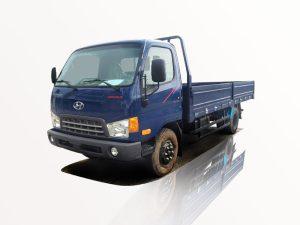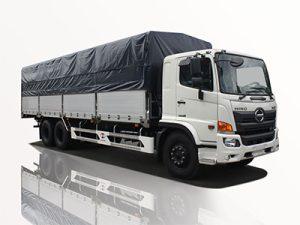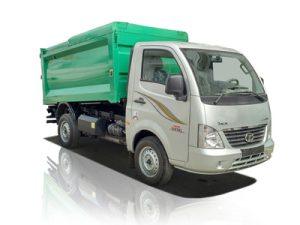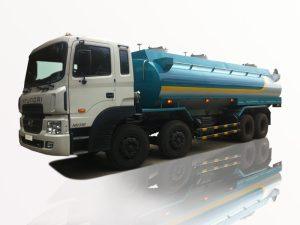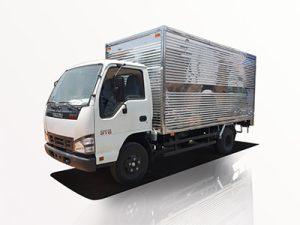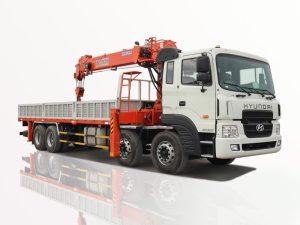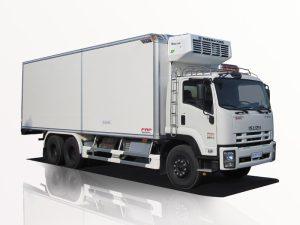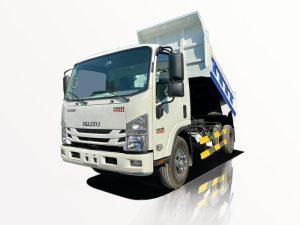Monday to Saturday - 8:00 -17:30
Bulk Feed Truck for Sale: Your Comprehensive Guide to Finding the Right Truck
In the agricultural world, bulk feed trucks play a crucial role in transporting large quantities of feed to farms and livestock operations. If you’re in the market for a bulk feed truck for sale, understanding the various options, features, and considerations can help you make an informed decision. This article aims to cover everything you need to know about purchasing a bulk feed truck, from types and specifications to tips for your buying journey.
Understanding Bulk Feed Trucks
Bulk feed trucks are specialized vehicles designed for transporting animal feed in bulk quantities. These trucks come equipped with various features tailored for agricultural use. Understanding these components is essential for any potential buyer.
Key Features of Bulk Feed Trucks
- Capacity: Bulk feed trucks vary in capacity, from 5 to 30 tons or more.
- Material: Most trucks are built from durable materials, including aluminum or steel, to ensure longevity.
- Discharge System: Different trucks come with various discharge mechanisms, such as auger systems or conveyor belts.
- Traction: Many models are designed with specialized tires suitable for uneven fields.
Types of Bulk Feed Trucks
There are several types of bulk feed trucks available on the market today. Each type has unique features designed for specific needs.
| Type | Description |
|---|---|
| Single Axle Trucks | Best for smaller operations with lower feed transportation needs. |
| Tandem Axle Trucks | Offers greater stability and higher weight capacity for larger farms. |
| Trailer Trucks | Flexible option allowing towing of multiple trailers for maximum capacity. |
| Specialized Models | Trucks designed for specific types of feed, such as liquid feed trucks. |
Factors to Consider When Buying a Bulk Feed Truck
When looking for a bulk feed truck for sale, there are multiple factors you should consider to ensure you get the best vehicle for your needs.
1. Budget
Setting a budget is critical. Bulk feed trucks can vary significantly in price, so it’s essential to understand your financial limitations before you begin shopping.
2. Requirements Based on Farm Size
Your farm’s feed requirements will largely dictate the type of truck you need. Smaller operations may require a single axle truck, whereas larger operations may need a tandem axle or trailer truck.
3. New vs. Used Trucks
Deciding whether to purchase a new or used bulk feed truck can have implications for cost and reliability. New trucks come with warranties and the latest technology, while used trucks can be significantly cheaper.
4. Brand Reputation
Research the reputation of different brands. Some manufacturers are known for building reliable, durable trucks while others may fall short. Check reviews and ratings before making your choice.
5. Maintenance Needs
Consider the ease of maintenance for the trucks you are looking at. Some models have more accessible parts and are easier to work on than others.
6. Financing Options
Understand your financing options. Many dealerships offer financing plans that can help you procure a bulk feed truck without a significant up-front investment.
7. Fuel Efficiency
Fuel efficiency can affect your overall operating costs. While this may vary, some trucks are designed to be more economical regarding fuel consumption.
8. Customization Options
Some manufacturers offer customization options allowing you to tailor the truck to your specific needs. Options can include different discharge systems, added insulation for certain feeds, or additional storage compartments.
Where to Find Bulk Feed Trucks for Sale
Finding a bulk feed truck for sale involves several avenues. Below are some effective ways to search for the right vehicle.
1. Online Marketplaces
Websites like eBay, Craigslist, and Facebook Marketplace often have listings for new and used bulk feed trucks. These platforms allow you to view a wide variety of options quickly.
2. Equipment Dealerships
Local agricultural equipment dealerships usually stock bulk feed trucks. Visiting these places can provide you with hands-on experience and sometimes, the opportunity to test drive a truck.
3. Auctions
Participating in agricultural equipment auctions can help you snag a good deal. However, it’s important to do your research and attend with a clear budget in mind.
4. Industry Expos and Trade Shows
Attending agricultural expos and trade shows allows you to see multiple options in one location. You can also network with vendors directly.
5. Classified Ads
Look for classified ads in agricultural magazines and local newspapers. These ads often have listings for used bulk feed trucks.
Practical Tips for Buying a Bulk Feed Truck
From negotiating price to inspecting the vehicle, here are some practical tips for finding the right bulk feed truck.
1. Inspect the Truck Thoroughly
Before making a purchase, inspect the truck for any signs of wear and tear. Check the tires, undercarriage, and engine to ensure they are in good condition.
2. Request a Vehicle History Report
If you are buying a used bulk feed truck, ask for a vehicle history report to ensure it hasn’t been in any major accidents or had significant repairs.
3. Take It for a Test Drive
Always take the truck for a test drive. This will help you understand how it handles on the road and if there are any mechanical issues.
4. Negotiate the Price
Don’t hesitate to negotiate the price. Use any findings from your inspection to justify your offer.
5. Confirm Warranty and Returns
For new trucks, confirm warranty details. For used ones, understand the return policy if issues arise shortly after purchase.
Maintaining Your Bulk Feed Truck
Proper maintenance is crucial to keeping your bulk feed truck in excellent condition. Below are some important maintenance tips.
1. Regular Inspections
Inspect your truck regularly for any unusual noises, leaks, or wear signs. Catching issues early can prevent costly repairs later.
2. Routine Servicing
Follow the manufacturer’s recommendations for routine servicing. This usually includes oil changes, fluid checks, and brake inspections.
3. Clean Without Fail
Keeping the truck clean, especially the storage compartments, helps prevent feed contamination and buildup.
4. Monitor Tire Condition
Check tire pressure and condition regularly. Properly inflated tires improve fuel efficiency and enhance safety on the road.
5. Document All Maintenance
Keep a maintenance log to document all services performed. This will help track the history and value of the truck if you choose to sell it in the future.
Frequently Asked Questions (FAQ)
1. What is the average cost of a bulk feed truck?
The cost of a bulk feed truck can vary widely depending on the size, condition, and features. Generally, new trucks can cost between $50,000 and $200,000, while used trucks can range from $10,000 to $100,000.
2. How long does a bulk feed truck last?
With proper maintenance, a bulk feed truck can last 10 to 20 years. However, this lifespan can vary based on usage and care.
3. Can I customize my bulk feed truck?
Yes, many manufacturers offer customization options for bulk feed trucks. You can tailor elements like the discharge system or storage options to fit your needs.
4. What should I look for in a used bulk feed truck?
When buying a used bulk feed truck, check for signs of wear, request a vehicle history report, inspect the engine and brakes, and take it for a test drive.
5. Is financing available for bulk feed trucks?
Many dealerships offer financing options for bulk feed trucks. You can also explore loans from agricultural lenders or banks specializing in farm equipment financing.
6. How do I maintain my bulk feed truck?
Regular inspections, routine servicing, keeping it clean, monitoring tire conditions, and documenting all maintenance activities are key to maintaining your bulk feed truck.


